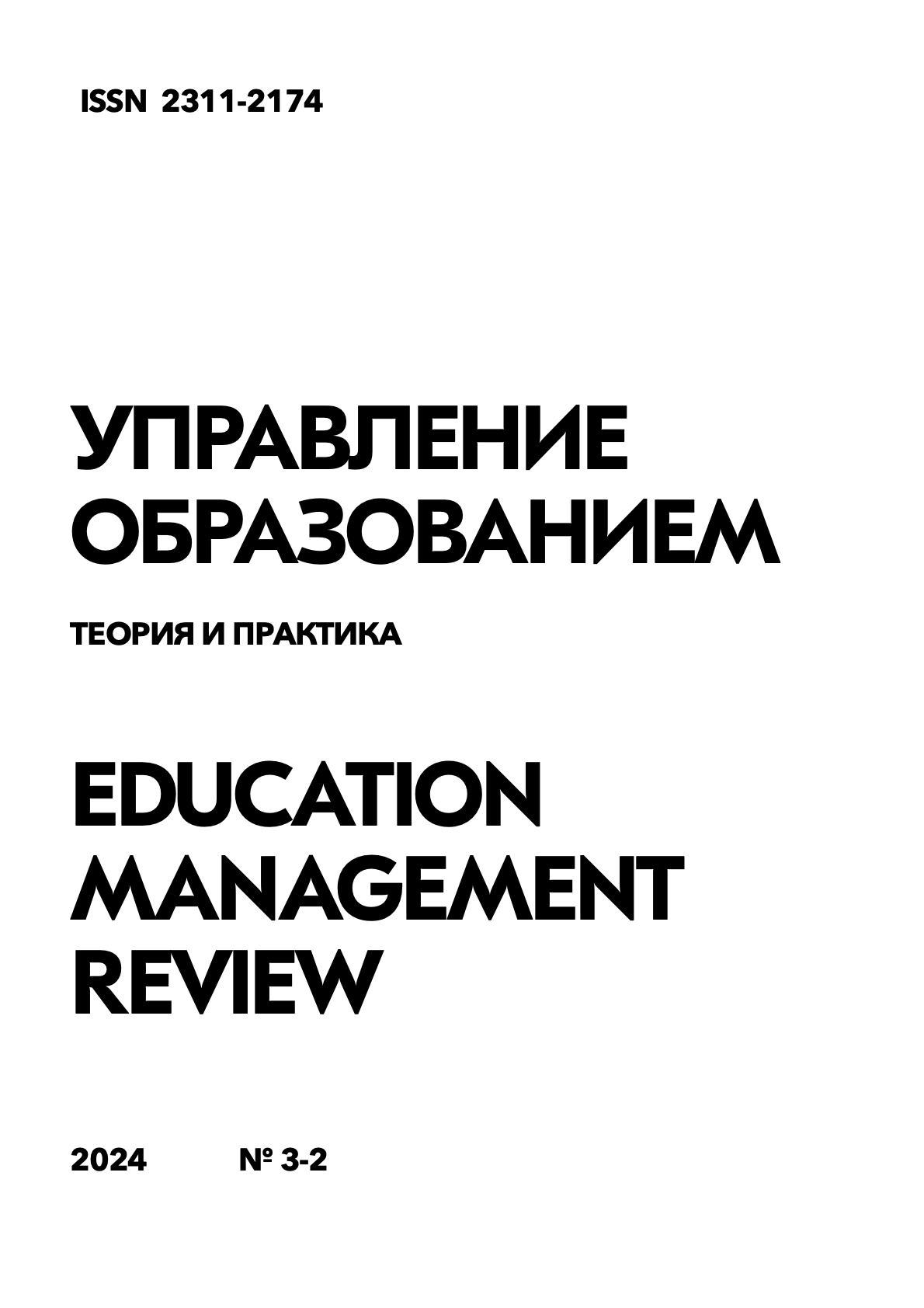Strategies to increase students' motivation to study environmental management through the implementation of research and applied projects
DOI:
https://doi.org/10.25726/v6085-3259-3529-lKeywords:
environmental management, student motivation, research projects, applied projects, empirical research, interdisciplinarity, problem-oriented learningAbstract
In modern conditions, the problem of increasing students' motivation to study environmental management is becoming particularly relevant. The purpose of this study is to develop effective strategies to stimulate students' interest in this field of knowledge by involving them in research and project activities. To achieve this goal, a comprehensive analysis of the scientific literature on the research problem was carried out, including 67 sources of domestic and foreign authors. In addition, empirical methods were used: a survey of 120 students of 2-4 courses in the field of Environmental Management, interviewing 15 teachers of specialized disciplines, monitoring the implementation of 8 research and 5 applied environmental projects with the participation of students in the period from 2018 to 2022. The obtained data were processed using methods of mathematical statistics (Student's t-test, correlation analysis). The study revealed that the level of motivation of students to study environmental management increases by an average of 28.4% (p<0.01) as a result of their involvement in scientific and applied projects. The most effective strategies are: 1) attracting students to field and laboratory research of topical environmental problems of the region (motivation increase by 35.1%); 2) implementation of interdisciplinary projects at the intersection of ecology, economics, sociology, law (increased interest by 32.6%); 3) development of real environmental business plans and startups by students (motivation increase by 29.8%); 4) active participation of students in environmental actions, forums, festivals (an increase in interest by 24.5%). At the same time, the key importance is the consistency and regularity of project activities, taking into account the individual inclinations and abilities of students, providing mentoring from leading scientists and practitioners.
References
Акимова Т.А., Хаскин В.В. Экология. Человек – Экономика – Биота – Среда: уч. для студ. вузов. 3-е изд., перераб. и доп. М.: Юнити-Дана, 2006. 495 с.
Ермаков Д.С. Формирование экологической компетентности учащихся: теория и практика. М.: МИОО, 2009. 180 с.
Мамедов Н.М. Экология, устойчивое развитие, культура // На пути к устойчивому развитию России. 2011. № 55. С. 3-14.
Хекхаузен Х. Мотивация и деятельность. 2-е изд. СПб.: Питер, 2003. 860 с.
Ясвин В.А. Психология отношения к природе. М.: Смысл, 2000. 456 с.
Barth M., Michelsen G., Rieckmann M., Thomas I. (Eds.) Routledge Handbook of Higher Education for Sustainable Development. L.: Routledge, 2016. 480 p.
Biggs J. Enhancing teaching through constructive alignment // Higher Education. 1996. Vol. 32. № 3. pp. 347-364.
Cortese A.D. The critical role of higher education in creating a sustainable future // Planning for higher education. 2003. Vol. 31. № 3. pp. 15-22.
De Castro R., Jabbour C.J.C. Evaluating sustainability of an Indian university // Journal of cleaner production. 2013. Vol. 61. pp. 54-58.
Dlouhá J., Glavič P., Barton A. Higher education in Central European countries - Critical factors for sustainability transition // Journal of Cleaner Production. 2017. Vol. 151. pp. 670-684.
Lozano R., Ceulemans K., Alonso-Almeida M., Huisingh D., Lozano F.J., Waas T., Lambrechts W., Lukman R., Hugé J. A review of commitment and implementation of sustainable development in higher education: results from a worldwide survey // Journal of Cleaner Production. 2015. Vol. 108. pp. 1-18.
Mulà I., Tilbury D., Ryan A., Mader M., Dlouhá J., Mader C., Benayas J., Dlouhý J., Alba D. Catalysing change in higher education for sustainable development: A review of professional development initiatives for university educators // International journal of sustainability in higher education. 2017. Vol. 18. № 5. pp. 798-820.
Ryan R.M., Deci E.L. Self-determination theory and the facilitation of intrinsic motivation, social development and well-being // American psychologist. 2000. Vol. 55. № 1. pp. 68-78.
Education for sustainable development goals: learning objectives. P.: UNESCO, 2017. 67 p.
Wiek A., Withycombe L., Redman C.L. Key competencies in sustainability: a reference framework for academic program development // Sustainability Science. 2011. Vol. 6. № 2. pp. 203-218.




